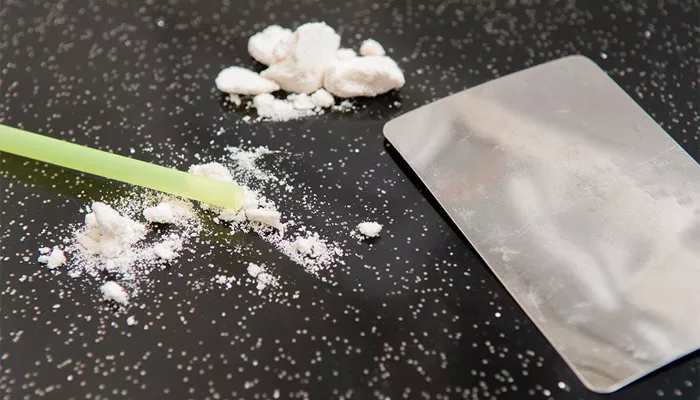Recreational drug use has become a significant public health concern, particularly due to its association with various cardiovascular complications, including arrhythmias. Arrhythmias are irregular heartbeats that can lead to serious health issues, including stroke and sudden cardiac death. Understanding the relationship between recreational drugs and arrhythmias is crucial for healthcare professionals and patients alike. This article explores several recreational drugs known to cause arrhythmias, focusing on their mechanisms of action, associated risks, and clinical implications.
What Is Arrhythmias?
Arrhythmias occur when the electrical impulses that coordinate heartbeats malfunction. This can result in the heart beating too fast (tachycardia), too slow (bradycardia), or irregularly. Common types of arrhythmias include atrial fibrillation (AF), ventricular tachycardia, and premature ventricular contractions. The risk factors for developing arrhythmias include structural heart disease, electrolyte imbalances, and substance use, particularly recreational drugs.
Recreational Drugs Linked to Arrhythmias
1. Cocaine
Cocaine is a powerful stimulant that significantly impacts the cardiovascular system. It increases sympathetic nervous system activity, leading to elevated heart rate and blood pressure. The drug inhibits the reuptake of norepinephrine, resulting in prolonged sympathetic stimulation. This can lead to various arrhythmias, including:
Tachyarrhythmias: Cocaine can cause fast heart rhythms due to increased myocardial oxygen demand and coronary artery spasm.
Bradyarrhythmias: In some cases, cocaine can lead to a decrease in heart rate through its effects on cardiac conduction.
Cocaine’s effects on ion channels can disrupt normal electrical conduction in the heart, increasing the risk of ventricular fibrillation and sudden cardiac death.
see also: When Should I Go to The Hospital for Arrhythmia?
2. Methamphetamine
Methamphetamine is another potent stimulant associated with severe cardiovascular effects. Its use has been linked to an increased risk of developing atrial fibrillation and other arrhythmias. Methamphetamine causes:
Increased Heart Rate: Similar to cocaine, methamphetamine stimulates the release of catecholamines, which raise heart rate.
Electrical Remodeling: Chronic use alters the electrical properties of cardiac cells, making them more susceptible to arrhythmias.
Research indicates that methamphetamine users have nearly double the risk of developing atrial fibrillation compared to non-users15. The drug’s impact on calcium signaling and ion channel function
contributes significantly to its arrhythmic potential.
3. Cannabis
Cannabis is one of the most widely used recreational drugs globally. While often perceived as less harmful than other illicit drugs, cannabis use has been associated with an increased risk of atrial fibrillation. The cardiovascular effects of cannabis include:
Tachycardia: Cannabis can increase heart rate shortly after consumption.
Blood Pressure Changes: It may cause fluctuations in blood pressure, which can trigger arrhythmic events in susceptible individuals.
A study found that cannabis users had a 35% increased risk of developing atrial fibrillation compared to non-users. The interaction between cannabis and other substances like tobacco further complicates its cardiovascular effects.
4. Opiates
Opiates such as heroin and prescription pain medications can also lead to arrhythmias. These substances primarily affect the central nervous system but have significant cardiovascular implications:
Bradycardia: Opiates can slow down the heart rate by enhancing parasympathetic activity.
Hypotension: They may cause low blood pressure, leading to inadequate perfusion and potential ischemic events.
While opiates are often associated with respiratory depression, their impact on heart rhythm should not be overlooked.
Users may experience various forms of bradyarrhythmias due to their effects on cardiac conduction pathways.
5. Ecstasy (MDMA)
Ecstasy is known for its stimulant and empathogenic effects but also poses risks for cardiovascular health. The use of MDMA can lead to:
Increased Heart Rate: MDMA stimulates the release of serotonin and norepinephrine, leading to a significant increase in heart rate.
Hyperthermia: This drug can cause elevated body temperature, which may further strain the cardiovascular system.
MDMA has been associated with various arrhythmias due to its sympathomimetic effects and potential for causing electrolyte imbalances.
6. Hallucinogens
Hallucinogens like LSD and psilocybin have complex interactions with neurotransmitter systems but can also induce cardiovascular changes:
Sympathetic Activation: These substances may cause mild increases in heart rate and blood pressure.
Potential for Arrhythmias: Although serious cardiovascular complications are rare, there is still a potential risk for arrhythmias in susceptible individuals.
Mechanisms Behind Drug-Induced Arrhythmias
The mechanisms through which recreational drugs induce arrhythmias are multifaceted:
Sympathetic Nervous System Activation: Many stimulants increase sympathetic tone, leading to elevated heart rates and blood pressure.
Ion Channel Dysfunction: Drugs like cocaine and methamphetamine directly affect ion channels responsible for cardiac electrical activity.
Structural Changes: Chronic use may lead to structural remodeling of cardiac tissue, increasing vulnerability to dysrhythmias.
These mechanisms highlight the importance of understanding individual patient risks when considering recreational drug use.
Conclusion
Recreational drugs pose significant risks for developing arrhythmias through various mechanisms affecting cardiac function. Cocaine, methamphetamine, cannabis, opiates, ecstasy, and hallucinogens each contribute differently to this risk profile. As healthcare providers continue to encounter patients with substance use issues, understanding these relationships will be critical in managing their cardiovascular health effectively.
Related topics:


